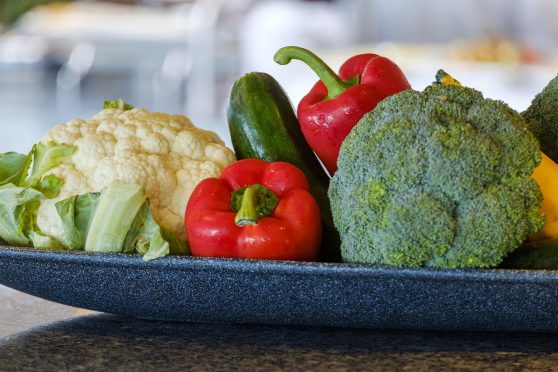The answer? They belong in the same family and so have much in common, yet each has its own distinctive qualities.
Honestly, Broccoli and cauliflower are from the cruciferous vegetable family, also called brassicas. This large family includes Brussels sprouts, cabbage, collard/spring greens, horseradish, kale, bok choy, kohlrabi, mustard, radish, rocket, watercress and wasabi.

All cruciferous vegetables contain very powerful natural compounds called glucosinolates that have strong cancer-fighting effects. They break down into other compounds, such as isothiocyanates, in your body and these are believed to be responsible for the main health benefits. Research suggests that eating cruciferous veggies regularly may help to protect us against many types of cancer, particularly digestive tract cancers, breast, lung, prostate and kidney.

To make the most of glucosinolates, you need an enzyme that’s already in the veggies and helps them break down and do their magic but it can get destroyed by heat. Hence it’s best to eat cruciferous vegetables raw or lightly steamed. When you do cook them, you can get around this problem by adding a pinch of mustard powder after cooking – it contains the necessary enzyme and so gives you the full health benefits.

Difference between cauliflower and broccoli
Broccoli has slightly more glucosinolates than cauliflower but both are excellent sources. Purple sprouting broccoli contains even more than regular broccoli as well as extra antioxidants. Coloured varieties of cauliflower tend to have more antioxidants than white cauliflower – essentially, the darker the colour, the more health-protecting compounds the vegetable has.
Another advantage that broccoli offers is beta-carotene – your body uses it to make vitamin A and it is also an antioxidant important for healthy skin and lung function. Beta carotene is a rare exception in that cooking makes it more bioavailable – cooked broccoli contains more than raw!
Broccoli is also high in lutein and zeaxanthin, carotenoids important for eye health. They accumulate in the retina of the eye and protect it from blue light. All the carotenoids together – beta-carotene, lutein and zeaxanthin – help to prevent age-related macular degeneration, a disease that causes vision loss. As carotenoids are only found in yellow, orange, red and dark green veggies, white cauliflower doesn’t contain any.
Broccoli also wins big when it comes to vitamin K – just one serving covers your daily needs. Cauliflower is a good source but doesn’t come close to broccoli. Vitamin K plays an important role in healthy blood clotting, calcium metabolism and regulates the inflammatory response of the body.
And broccoli also offers more vitamin E – crucial for healthy skin and cells, calcium for healthy bones and muscle function and iron, vital for oxygen transport by blood. It has a little more protein and fibre too but that’s mainly because cauliflower has a higher water content – more of its weight is taken up by water.






